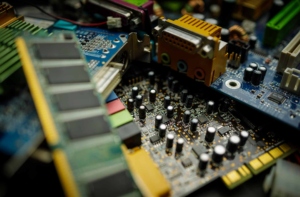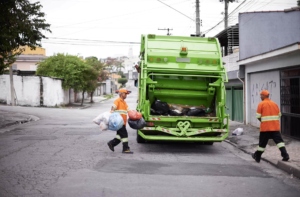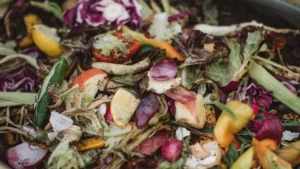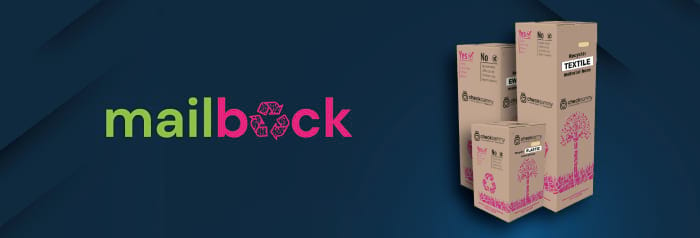Organics Recycling: Efficient Compost Recycling for the Forward-Thinking Business Leader
Innovative business leaders are constantly seeking ways to make their operations more sustainable and environmentally friendly. One area ripe for improvement is organic waste management. Enter organics recycling, a largely untapped opportunity that offers both environmental and economic benefits. In this article, we’re exploring the potential of efficient compost recycling.
From leftover food in the break room to landscaping waste, organic materials constitute a considerable percentage of the waste generated by businesses. When these materials end up in landfills, they contribute to the emission of harmful greenhouse gasses like methane. By adopting organics recycling practices, businesses can help reduce their environmental impact and discover cost efficiencies.
Join us as we delve into the ins and outs of organics recycling.
What is Organics Recycling?
Organics recycling involves the process of transforming organic waste materials into a valuable resource: compost. Organic waste includes waste from plant or animal sources, whether it’s leftover food, food scraps, or yard and landscaping waste. The key to organics recycling lies in separating these materials from the rest of your waste stream and putting them through a controlled decomposition process, which typically involves composting or anaerobic digestion.
Composting
Composting is a natural process where microorganisms break down organic matter in an oxygenated environment, creating a nutrient-rich, soil-like substance called compost. There are different approaches to composting, from in-vessel composting, to windrow composting and static pile composting. Whatever method you follow, the goal is the same: to convert organic waste into a valuable resource that can be used to improve soil health and fertility.
Anaerobic Digestion
Anaerobic digestion is often the preferred method of organics recycling for organizations with larger amounts of organic waste. In this process, organic materials are broken down by microorganisms in an oxygen-free environment. This process produces compost but also generates biogas – a renewable energy source that can be used for heating, electricity generation, or vehicle fuel. Anaerobic digestion offers additional benefits than composting, including energy production and reduced greenhouse gas emissions.
Organics Recycling at Anaerobic Digestion Facilities
The anaerobic digestion process involves a series of biological reactions carried out by different types of microorganisms. Here’s a quick overview of how these facilities work:
Feedstock preparation and pre-treatment: The organic waste materials, also known as feedstock, are collected and delivered to the anaerobic digestion facility. Upon arrival, the feedstock is often pre-treated to remove contaminants, such as plastics or metals, and may be shredded or mixed with water to create a uniform slurry, which facilitates the digestion process.
- Anaerobic digestion: The waste is transferred into an anaerobic digester, which is a sealed container or tank that maintains an oxygen-free environment. Microorganisms inside the container break down the organic matter into simpler molecules, which produces methane and carbon dioxide, forming biogas.
- Biogas collection and processing: The produced biogas is captured and then it is usually treated to remove impurities. Once cleaned, the biogas can be transmitted for use in electricity generation, heating, or vehicle fuel. With further processing, it can be turned into biomethane, which has a higher energy content and can be injected into the natural gas grid.
- Digestate handling and utilization: The non-gas byproduct after the anaerobic digestion process is completed, called digestate, is separated out. The solid portion is rich in nutrients and organic matter and is often used as a soil amendment or compost. The liquid part of the digestate can be applied as a fertilizer. Both the solid and liquid digestate can help improve soil health and crop yield, and reduce reliance on synthetic fertilizers.
The CheckSammy Sustainability Network
At CheckSammy, we’ve been committed to organics recycling since day one – and building an extensive network of sustainability facilities to support these efforts. We’re partnered with anaerobic digestion facilities, among other recycling vendors, across the country, enabling us to provide efficient compost recycling services wherever you are located. The comprehensive reach of our sustainability network ensures that the distance from your location to an end-of-life facility is minimized. This results in reduced transportation emissions and a lower carbon footprint, while effectively handling organic waste sustainably.
The Benefits of Organics Recycling
Businesses that implement an organics recycling program experience several benefits, including:
- Cost Savings – With landfill costs increasing, diverting organic waste from traditional disposal methods like landfilling or incineration can lead to significant cost savings. In some circumstances, the biogas generated from anaerobic digestion can even provide additional revenue through renewable energy initiatives.
- Enhanced Brand Reputation – Adding organics recycling to your company’s waste management strategy demonstrates a strong commitment to sustainability, which can positively impact your brand image as consumers and stakeholders are increasingly conscious of environmental responsibility.
- Regulatory Compliance – With environmental regulations becoming more stringent and landfill diversion a growing imperative, organics recycling can help businesses stay ahead of the curve and comply with any existing or future waste diversion requirements.
Getting Started with Organics Recycling
With the many business advantages of organics recycling, there’s no better time to start. Given CheckSammy’s extensive organics recycling experience and wide network of sustainability providers, we have all the resources you need to develop and maintain an efficient compost recycling program. Contact us today to learn more.
See Our Services
Create a custom solution to meet your waste and sustainability goals. Contact us today!
Continue reading
Dive deeper into the CheckSammy Blog by reading one of our posts below
Feeling the Pain of Higher Resident Turnover? Apartment Junk Removal Can Help
If you’re a property manager, you’ve probably had a significant increase in tenant turnover over the last couple of years. So it’s no wonder apartment junk removal may be top of mind for you right now. There are several reasons for this shift. For one, the housing market is on fire right now. In 2020 […]
Read More About Feeling the Pain of Higher Resident Turnover? Apartment Junk Removal Can HelpSetting Up a Community E-waste Recycling Program
E-waste is the fastest-growing municipal waste stream according to the EPA, yet e-waste recycling isn’t keeping pace. In fact, only 12.5% of all e-waste is recycled, reports the EPA. Starting a community e-waste recycling program is a terrific way to ensure hazardous e-waste, like lithium-ion batteries, doesn’t end up in your community’s landfill. Creating an […]
Read More About Setting Up a Community E-waste Recycling ProgramWaste Management’s Role in the Circular Economy
Establishing a waste management program for your business or community is one of the best ways you can contribute to the circular economy. Here’s everything you need to know about waste management’s role in the circular economy (and how to get involved). What Is the Circular Economy? Our current economic model is all about taking […]
Read More About Waste Management’s Role in the Circular Economy5 Reasons to Consider a Textile Recycling Program for Your Organization
Americans sent more than 17 million tons of textiles to landfills in 2018, a volume that is only increasing every year, reports the Environmental Protection Agency. When you think about the fact that it can take over 200 years for textiles to decompose, it’s easy to grasp how large textile waste’s contribution is to the […]
Read More About 5 Reasons to Consider a Textile Recycling Program for Your Organization8 Benefits of Environmentally Friendly Power Washing Services
If you’re into maintaining the curb appeal of your business or home, then you’ve probably heard of pressure washing. Pressure cleaning involves using high-pressure water spray to remove grime, mold, dust, paint, mud, and other junk from objects or surfaces. Many people worry that pressure washing isn’t good for the environment, but this couldn’t be […]
Read More About 8 Benefits of Environmentally Friendly Power Washing ServicesWhy Our Customers Love Our Full-Service Junk Removal
If you’re looking for full-service junk removal services, you’ve come to the right place. CheckSammy is a one-stop shop for all your junk removal and sustainability needs. From our affordability, simplicity, and unrivaled turnaround times to our innovative sustainability solutions and patented technology and data, it’s clear why some of North America’s biggest companies choose […]
Read More About Why Our Customers Love Our Full-Service Junk RemovalTips for a Stress-Free Move From An Eco-Friendly Junk Removal Company
What does an eco-friendly junk removal company know about moving? Quite a lot, actually. Moving can be an especially chaotic time. You have to pack everything up, get rid of unwanted items, clean your property, load everything up, and move your things to your new location. That doesn’t even include the unpacking and resettling period. […]
Read More About Tips for a Stress-Free Move From An Eco-Friendly Junk Removal CompanyCollege Junk Removal Tips for Student Move-In Day
As the new school year gears up, colleges across the country are looking for ways to clean up their campuses before the new year begins, and many of them want to do so sustainably. College junk removal isn’t easy, though, especially around move-in week—and when trying to do so sustainably. As students move in and […]
Read More About College Junk Removal Tips for Student Move-In Day8 Items Hospitality Businesses May Not Know They Can Recycle
One hotel guest produces 2.5 pounds of trash every single day. Just a single hotel room produces around one cubic yard of waste each month, which totals 200 gallons of waste per room every month. Most of this waste goes straight to the landfill, even though research shows that up to 60% of it is […]
Read More About 8 Items Hospitality Businesses May Not Know They Can Recycle












